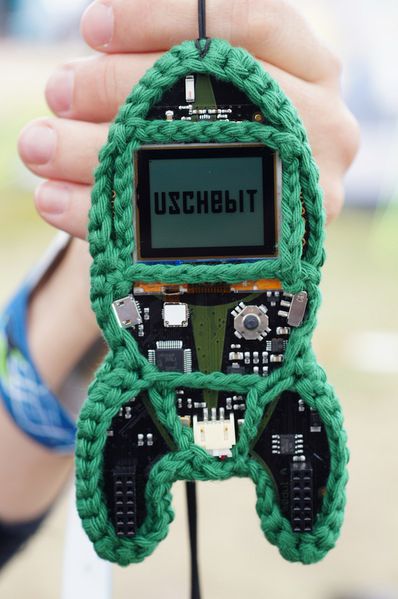While being in Ireland, I had the great opportunity of attending the CHIS-ERA strategic conference 2011 in Cork. Never heard of it? Neither have I. It’s a conference of European academic funding bodies to project and discuss future work and the direction of the work to be funded. Hence, it had many academics or industrial research people that talked about their vision for the next few years. If I got it correctly, the funding bodies wanted some input on their new “Call” which is their next big pile of money they throw at research.
The two broad topics were “Green ICT” and “From Data to Knowledge“. And both subjects were actually interesting. But due to the nature of the conference, many talks were quite high level and a bit too, say, visionary for my taste. But it had some technical talks which I think were displaced and given by poor Post-Docs that needed to have a presentation on their record to impress their supervisor or funding body.
However, for the Green IT part, almost all the speakers highlighted how important it was to aim for “Zero Power ICT”, because the energy consumption of electronic devices would shoot up as it did the last decade or so. But it hadn’t necessarily been much of problem, because Moore’s Law would save us a bit: We knew that in a couple of month, we could place the same logic onto half the chip which would then, according to the experts, use half the energy. However, that wouldn’t hold anymore in a decade or two, because we would reach a physical limit and we needed new solutions to the problem.
Some proposed to focus on specialised ICs that are very efficient or could be turned off, some others proposed to build probabilistic architectures because most of time a very correct result wouldn’t matter or to focus research on new materials like nanotubes and nanowires. The most interesting suggestion was to exploit very new non volatile memory technologies using spintronic elements. The weirdest approach was to save energy by eliminating routers on the Internet and have a non routing Internet. The same guy proposed to cache content on the provider as if it wasn’t done already by ISPs.
After the first day, we had a very nice trip to the old Jameson Distillery in Midleton. It started off with a movie telling us the story about Jameson coming to Ireland and making Whiskey. It didn’t forget to mention that Irish Whiskey was older and of course better than the Scottish and the tour around the old buildings were able to tell us what makes Irish Whiskey way better than the Scottish. Funnily enough, they didn’t tell us that the Jameson guy was actually Scottish 😉 I do have to admit that I like the Irish Whiskey though 🙂 The evening completed with a very nice and fancy meal in a nice Restaurant called Ballymaloe. I think I never dined with so many pieces of cutlery in front of me…
![]()
The second day was about “From Data to Knowledge” and unfortunately, I couldn’t attend every lecture so I probably missed the big trends. When I heard that Natural Language Processing and Automatic Speech Recognition were as advanced as being able to transcribe a spoken TV or radio news show with a 5% error rate, I was quite interested. Because in my world, I can’t even have the texts that I write corrected because I need to use ispell which doesn’t do well with markup or other stuff. Apparently, there is a big discrepancy between the bleeding edge of academic research and freely available tools 🙁 I hope we can close this gap first, before tackling the next simultaneous translation tool from Urdu to Lowgerman…







